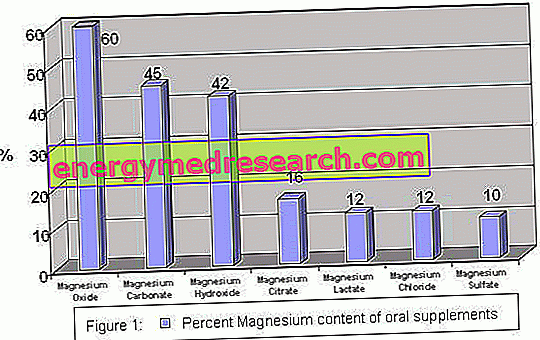Definition
In the medical field, vomiting (or emesis) outlines the rapid and sudden emission of food, other substances and part of the gastric contents, through the mouth; vomiting is often preceded by nausea and more or less pronounced spasmodic (conate) respiratory movements.
Causes
The causes that are at the base of vomit are very variegated and disparate, and they range in different areas: alterations of the metabolism (keto-acidosis, diabetes, hyperparathyroidism, Addison's disease), drug intake, prolonged fasting, acute pain, excessive intake of foods or liquids, emotional elements, drugs (chemotherapy), pregnancy, inflammation of the peritoneum (appendicitis, peritonitis), diseases of the digestive system (gastritis, enteritis), intestinal obstruction and biliary tract, surgical operations, tumors.
- Although very different, all the causal elements of vomiting are the result of a stimulation of the bulbar center of vomiting.
Symptoms
Vomiting is often preceded by an unpleasant feeling of nausea, often accompanied by a hypersecretion of saliva (sialorrhea), retching and hyperlacrimation. Vomiting can also cause quite heavy consequences, such as: metabolism alkalosis, dehydration, esophageal bleeding, hiatal hernia, dental problems, capillary rupture resulting from exertion (especially of the face and eyes), muscle tears.
Natural Care
Information on Vomiting - Medications for Vomiting Care is not intended to replace the direct relationship between health professional and patient. Always consult your doctor and / or specialist before taking Vomiting - Vomiting Medications.
drugs
Sporadic episodes of vomiting should not be too alarming, especially when they occur after a large dinner or after eating heavy food; in similar situations, the administration of drugs to appease vomiting does not make much sense.
If the vomiting were a frequent phenomenon, associated with fever or very violent abdominal cramps, the doctor's opinion, with the visit, is essential; sometimes, vomiting is a phenomenon secondary to pathologies already diagnosed and in progress, other times a given disease is discovered starting from the secondary symptom, vomiting.
Particularly alarming is the blood vomiting, greenish and fecaloid (nauseating): even in this case, medical supervision or even hospitalization are indispensable.
Especially in children, vomiting - especially when associated with diarrhea - is rather dangerous, given that it can cause dehydration, a phenomenon that requires immediate administration orally or intravenously, of lost electrolytes and fluids.
The use of anti-vomiting (anti-emetic) drugs is useful, but only after having diagnosed the cause of origin: in fact, taking these drugs can sometimes be a limit for the diagnosis, since it can mask the element trigger.
Taking a drug always depends on the cause of origin and the patient's health conditions
Anticholinergic-antispastic drugs for the treatment of vomiting :
- Meclizine (eg. Antivert): the recommended dose for the treatment of vomiting is 25-50 mg of drug, to be taken orally once a day, as needed.
- Trimethobenzamide (eg. Tigan): taken orally, the dosage of the drug is 250-300 mg, 3-4 times a day. Intramuscularly, it is recommended to take the drug at a dose of 200 mg, 4 times a day. The drug can also be taken rectally (suppositories): 200 mg, 3-4 times a day, as needed.
- Scopolamine (eg Erion, Addofix): antimuscarinic drug particularly indicated to give symptomatic relief to gastrointestinal disorders, such as vomiting and diarrhea. Or take 20 mg of active ingredient 4 times a day (halve the dose for children aged between 6 and 12 years). It is also possible to administer the drug intravenously, at the same dose, and transdermally (patches).
Motility stimulating drugs for the treatment of vomiting :
- Metoclopramide (eg Plasil): belongs to the class of dopamine receptor blockers. It is an antiemetic drug, also indicated to promote intestinal peristalsis and digestion. Parenterally, take 10 mg of drug, three times a day, preferably before meals. Also available in tablets and syrup.
- Domperidone (eg. Motilium, Peridon): it is recommended to take the drug at a dose of 10-20 mg, 3-4 times a day, orally. Do not exceed 80 mg. The drug is also available in the form of 60 mg suppositories: apply 2 suppositories per day, as needed. It is especially indicated for the treatment of vomiting associated with chemotherapy; sometimes it is indicated to resolve vomiting following the morning-after pill. Causes less side effects than the previous drug.
Dopamine antagonist drugs for the treatment of vomiting : indicated for both the prevention and treatment of nausea and vomiting
- Chlorpromazine (eg Clorpr C FN, Largactil): it is recommended to take the drug at a dose of 10-25 mg every 4-6 hours, as needed. It is possible to increase the dose, under medical advice; intramuscularly, the drug should be administered at a dose of 25 mg once only. In the absence of marked hypotensive episodes, take 25-50 mg of the drug every 3-4 hours, as needed. The active ingredient can also be taken rectally (a 100 mg suppository every 6-8 hours).
- Perfenazine (eg. Trilafon): in case of nausea and / or vomiting, it is recommended to take the drug at a dose of 8-16 mg, fractionated in several doses during the 24 hours.
- Proclorperazine (eg Stemetil): take 5-10 mg of drug (tablets), 3-4 times a day; alternatively, take 10-15 mg of active in the form of capsules every 12 hours. By rectal route, the drug is taken at a dose of 25 mg, twice a day; intramuscularly, 5-10 mg as needed. Finally, the drug is also available as a solution for injection into a vein: 2.5-10 mg per slow IV injection (no more than 5 mg per minute). Do not exceed 10 mg in a single dose. The drug is also indicated to quell vomiting after surgery.
Antihistamines for the treatment of vomiting : these drugs are indicated to treat vomiting of various kinds (eg movement sickness, nausea from pregnancy):
- Dimenidrinato (eg. Travelgum, Xamamina, Lomarin, Valontan): indicated for treating vomiting and nausea while traveling by car, plane, ship. Available in the form of chewable 20 mg confetti, the drug should be taken every 3-4 hours, as needed.
- Prometaziona (eg Promet DYN, Farganesse, Fenazil): indicated for the treatment of severe vomiting in pregnancy: take 25 mg of medication in the evening, before going to bed. Do not exceed 100 mg a day.
- Hydroxyzine (eg Atarax): the indicative dose is 25-100 mg, to be taken intramuscularly. Indicated to treat post-operative or post-partum vomiting.
Antipsychotics : antipsychotic drugs can also be useful to counteract nausea and vomiting, given that particular emotional conditions are able to influence the person to the point of triggering such effects. The drugs most used for this purpose are:
- Haloperidol (eg. Aloperid Fn, Serenase, Haldol Decanoas): the drug should be taken at a dosage of 1-5 mg orally or intramuscularly.
- Levomepromazine (eg. Nozinan, 25-100 mg tablets): the drug is an antipsychotic neuroleptic indicated for the treatment of schizophrenia, manias, delirium and toxic psychosis. However, it is sometimes also indicated to counteract nausea and vomiting, as a second choice drug. Do not exceed the dose, consult your doctor.



